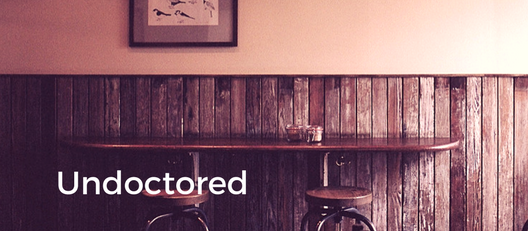For older people and frail people, the long-term benefit of medicines reduces and the potential for harm from adverse effects increases. When the benefit–risk balance changes in this way, medicine review and optimisation are important to simplify the therapeutic regimen, reduce inappropriate medicines and minimise risks. In this article, pharmacist prescriber Linda Bryant uses two case studies to illustrate important considerations during medicine reviews
Health equity still ‘under construction’ say doctors
Health equity still ‘under construction’ say doctors

Wellbeing may be at the centre of government strategy, but too many children and whānau are remaining on the outer, cautions The Royal Australasian College of Physicians (RACP).
In a series of report cards released today, the RACP’s Aotearoa NZ President, paediatrician Dr Jeff Brown said that while some progress has been made, transformative change remains ‘under construction’ for the most vulnerable in Aotearoa New Zealand.
“The RACP’s 2017 election statement centred on the social determinants of health, and called for healthy housing, good work and whānau wellbeing to be the norm for all people in Aotearoa. In 2019, are we making health equity the norm?”
“Our three report cards look at what policies are making a difference to people’s health and wellbeing and check in on our case study whānau: Where has policy change made a difference in their lives, and where do they continue to struggle?”
The RACP’s Report Cards include results on the top three policies making a difference to people’s health in housing, work, and whānau wellbeing as identified by physicians and paediatricians. These include the introduction of healthy homes standards, greater annual increases in the minimum wage, and more people being eligible for lower-cost primary health care.
“There have absolutely been legislative and policy changes in this government’s term that have and will continue to make a difference to the lives of children and whānau in Aotearoa,” Dr Brown said.
However, Dr Brown noted that despite nearly every major area of government activity and expenditure being under review, the evidence-based recommendations many reports have proposed have largely been distanced from government strategy, or apparently shelved completely.
“The results of the major reviews of NZ government systems has not lead to immediate shake-ups in the way we deliver services or work to reduce inequities,” Dr Brown said.
“The government is poised to make announcements on its larger than anticipated surplus. The RACP calls for the surplus to go towards making health equity the norm for people in Aotearoa NZ.”
Dr Brown cited the recommendations in the Whakamana Tangata report into New Zealand’s social welfare system as a report providing the blueprint for equitable, transformational change.
“Unfortunately, as only three out of 42 recommendations have been accepted and acted on, it appears that restoring dignity to our most vulnerable whānau is very much still under construction.”
The RACP’s recommendations to make health equity the norm include:
• Healthy Housing: Building public housing as a matter of urgency
• Good Work: Encouraging greater uptake of the Living Wage, to make a difference to household incomes
• Whānau Wellbeing: Extend the Winter Energy Payment to whānau living on low incomes to reduce fuel poverty and risks of respiratory illnesses




![New Zealand Doctor Rata Aotearoa editor Barbara Fountain, RNZCGP president elect and Tauranga-based specialist GP Luke Bradford, Ministry of Health clinical chief advisor rural health Helen MacGregor, and Health New Zealand Te Whatu Ora clinical director primary and community care Sarah Clarke [Image: NZD]](/sites/default/files/styles/thumbnail_cropped_100/public/2025-05/1.%20Barbara%20Fountain%2C%20Luke%20Bradford%2C%20Helen%20MacGregor%20and%20Sarah%20Clarke.jpg?itok=091NETXI)
![Ngāti Porou Oranga specialist GP Elina Pekansaari and Te Nikau Hospital specialist in general practice and rural hospital medicine David Short [Image: NZD]](/sites/default/files/styles/thumbnail_cropped_100/public/2025-05/2.%20Elina%20Pekansaari%20and%20David%20Short.jpg?itok=h5XfSBVM)
![Locum specialist GP Margriet Dijkstra and OmniHealth regional operations manager (southern) Patricia Morais-Ross [Image: NZD]](/sites/default/files/styles/thumbnail_cropped_100/public/2025-05/3.%20Margriet%20Dijkstra%20and%20Patricia%20Morais-Ross.jpg?itok=jkrtRfJC)
![Golden Bay dairy farmer and dairy industry health and safety doctoral student Deborah Rhodes, and Golden Bay Community Health specialist GP Rachael Cowie [Image: NZD]](/sites/default/files/styles/thumbnail_cropped_100/public/2025-05/4.%20Deborah%20Rhodes%20and%20Rachael%20Cowie.jpg?itok=oM0_GcJc)
![Hauora Taiwhenua clinical director rural health Jeremy Webber, Australian College of Rural and Remote Medicine president Rod Martin and Observa Care director of business operations Deborah Martin, the wife of Dr Martin [Image: NZD]](/sites/default/files/styles/thumbnail_cropped_100/public/2025-05/5.%20Jeremy%20Webber%2C%20Rod%20Martin%20and%20Deborah%20Martin%2C%20the%20wife%20of%20Dr%20Martin.jpg?itok=P_aGmX_H)
![Spark Health chief executive John Macaskill-Smith and client director Bryan Bunz [Image: NZD]](/sites/default/files/styles/thumbnail_cropped_100/public/2025-05/6.%20John%20Macaskill-Smith%20and%20Bryan%20Bunz.jpg?itok=5yJvVZ0I)
![Associate dean (rural) Kyle Eggleton, third-year medical student Roselle Winter, and second-year pharmacy student Alina Khanal, all from the University of Auckland [Image: NZD]](/sites/default/files/styles/thumbnail_cropped_100/public/2025-05/7.%20Kyle%20Eggleton%2C%20Roselle%20Winter%20and%20Alina%20Khanal.jpg?itok=RQLd3TEs)
![Health New Zealand Te Whatu Ora clinical editor and specialist in general practice and rural hospital medicine Anu Shinnamon, and Whakarongorau chief clinical officer Ruth Large [Image: NZD]](/sites/default/files/styles/thumbnail_cropped_100/public/2025-05/8.%20Anu%20Shinnamon%20and%20Ruth%20Large.jpg?itok=i5TMswY9)
![Te Kahu Hauora Practice specialist GP Jane Laver and Ngāti Kahungunu ki Tāmaki-nui-a-Rua chief operations manager Tania Chamberlain [Image: NZD]](/sites/default/files/styles/thumbnail_cropped_100/public/2025-05/9.%20Jane%20Laver%20and%20Tania%20Chamberlain.jpg?itok=jtMklaCZ)